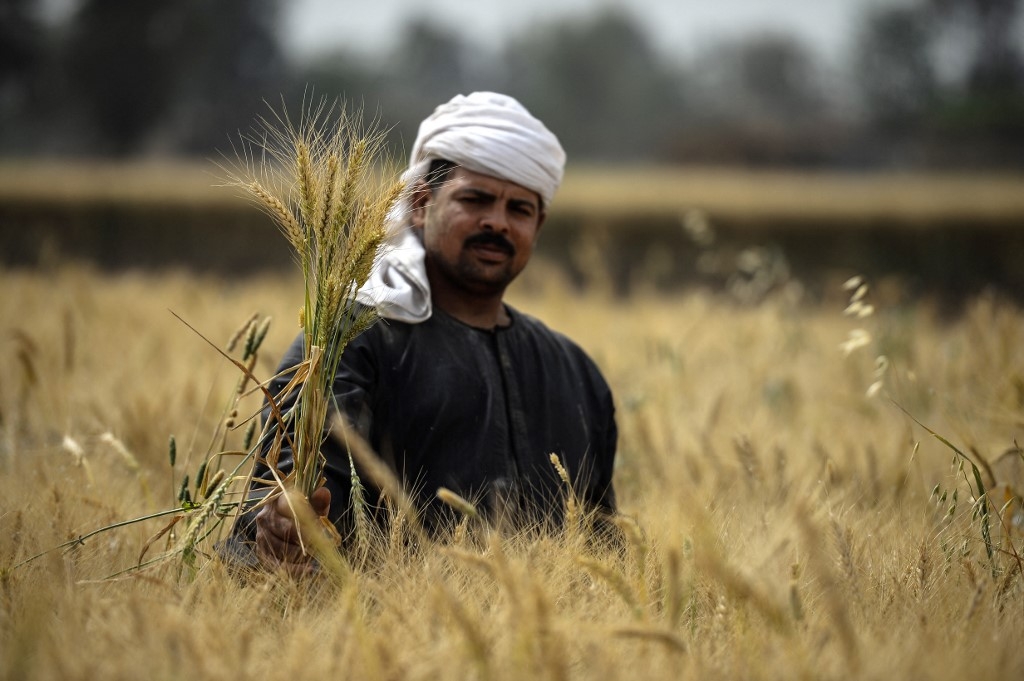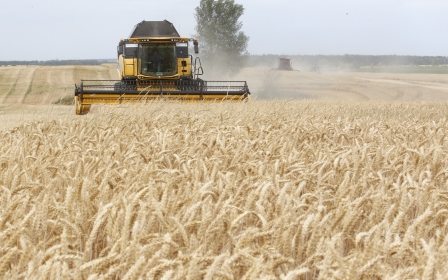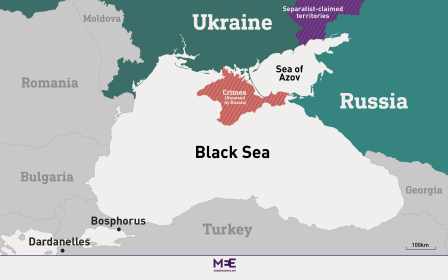Russia-Ukraine war: Egypt has 'nine months before wheat reserve dries up'

Egypt has almost nine months before its wheat reserve dries up as the country fears disruption of wheat supply from Russia, following Moscow's war on Ukraine this week, a government spokesman said Friday.
Egypt imports nearly 85 percent of its wheat from Russia and Ukraine. The two neighbouring countries have been locked in a deadly war that began on Thursday.
Wheat is a lifeline for Egypt, and 102 million Egyptians rely heavily on bread as a staple food. Historically, Egypt had seen multiple uprisings protesting the hiking of prices of bread and wheat.
New MEE newsletter: Jerusalem Dispatch
Sign up to get the latest insights and analysis on Israel-Palestine, alongside Turkey Unpacked and other MEE newsletters
Nader Saad, the Cabinet spokesman, has raised the alarm that currently the country has nine months' worth of wheat in silos, including five months of strategic reserves and four months of domestic production to cover the needs of bread for millions of Egyptians.
Saad added in his statements to a local TV channel that Egypt would not be able to buy wheat at the same price as it got from Russia.
"There are 14 countries other than Russia and Ukraine approved by the Ministry of Supply as sources for the supply of wheat, including countries located in regions outside Europe such as Australia, the United States, Canada and Paraguay," Saad said.
“We will not be able to have the same price that we were getting before the Russian-Ukrainian crisis, due to lower supplies," he explained.
Egypt is expected to bump up its reserve from domestic wheat production in April. However, this would not be enough to cover the needs of bread for Egyptians.
Egypt is one of the largest importers of wheat globally. Between July 2020 and June 2021, it imported 13.3m tonnes of wheat, 8.96m tonnes from Russia.
Hesham Abuldahab, a member of the grains section at the Cairo Chamber of Commerce, told Middle East Eye that "Egypt will be deeply affected in case the war erupts between Russia and Ukraine. Most of our wheat imports come from these two countries."
Naguib Sawiris, an Egyptian billionaire and business tycoon, tweeted on Tuesday that authorities had to start stockpiling wheat as 30 percent of global production of the grain comes from Russia and Ukraine.
“We must hurry to buy and store wheat before the Ukraine-Russia war, they produce 30-per cent of the world’s wheat production, and if a war breaks out, all of this will not be available, and the prices will be high,” he warned.
The country also fears the hike of petrol prices and tread a thin line as the Russian-Ukrainian conflict escalated into a full-blown war.
On Thursday, the Egyptian Hotel Association instructed all hotels to continue to accommodate tens of thousands of Russians and Ukrainians who were stuck in the country as flights to Ukraine and Russia were severely disrupted.
Several Middle Eastern countries are braced for the worst as the Russian-Ukrainian war continues, including Yemen, Syria, Lebanon, Algeria and Libya, all of which suffer from poor economies and political crises in the past decade.
On Thursday, Tunisia, which imports nearly 50 percent of its wheat supplies from Ukraine, said it has enough stored for the next four months.
Avigdor Lieberman, Israel's economy minister, said on Thursday that his country should keep "a low profile" regarding the conflict in eastern Europe given that Israel imports 50 percent of its wheat from Russia and 30 percent from Ukraine.
Middle East Eye delivers independent and unrivalled coverage and analysis of the Middle East, North Africa and beyond. To learn more about republishing this content and the associated fees, please fill out this form. More about MEE can be found here.




